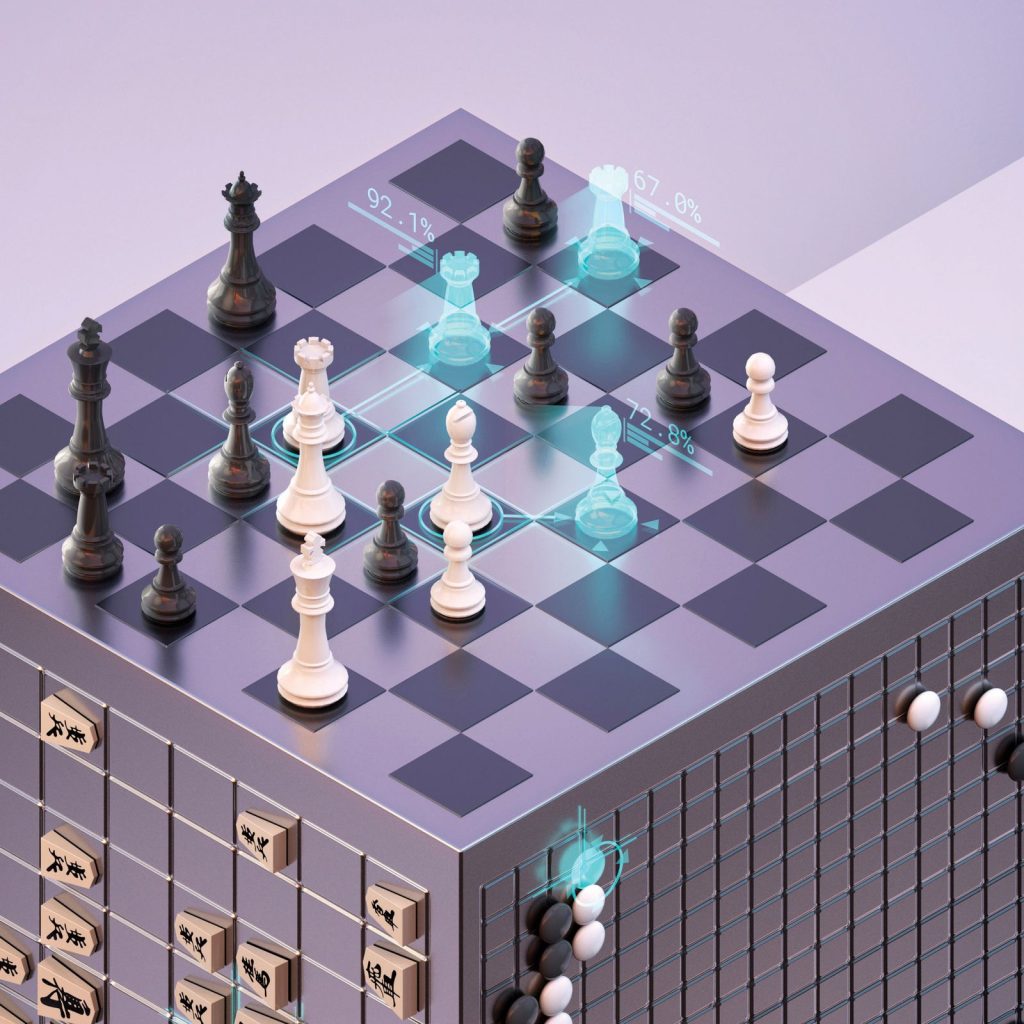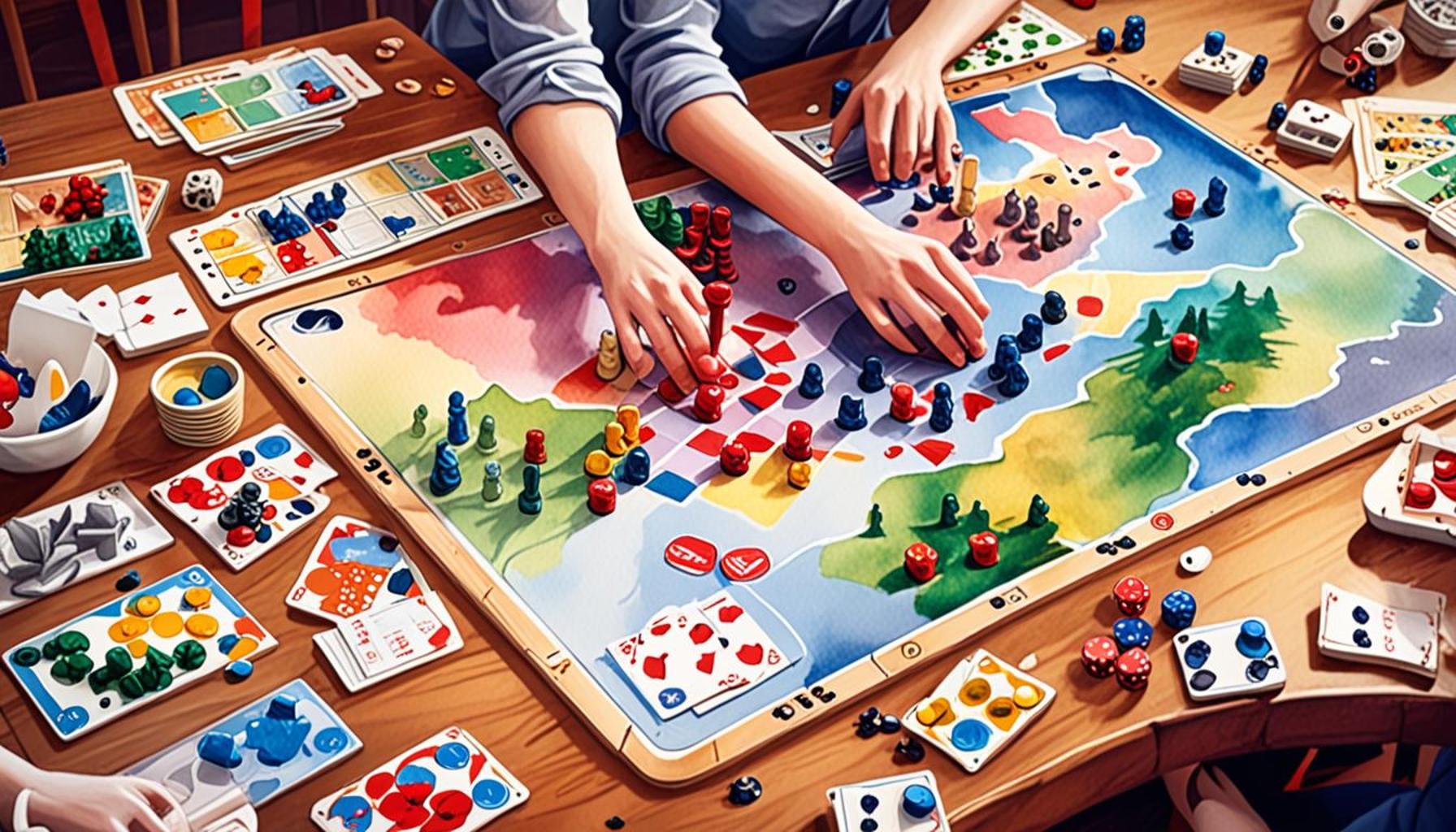Exploring the Relationship between Strategy Games and Analytical Thinking

The Cognitive Benefits of Strategy Games
In a world driven by rapid decision-making and complex problem-solving, strategy games have emerged as a significant tool for enhancing analytical thinking. These games require players to navigate challenges that stimulate cognitive development and sharpen reasoning skills. By immersing themselves in strategic scenarios, players actively engage in mental exercises that foster a wide array of cognitive abilities. With the increasing prevalence of digital entertainment, understanding the value of these games can change how we approach learning and skill development.
Some notable benefits of strategy games include:
- Enhanced problem-solving skills: Players must think critically and develop solutions to overcome obstacles. For example, in Chess, each move creates new challenges that require players to analyze their position and devise a strategy to counter their opponent’s moves. The ability to foresee consequences and adapt to changing circumstances is a vital aspect of problem-solving that extends beyond the gaming board.
- Improved decision-making: The time-sensitive environment cultivates quick, yet reasoned choices. Take Starcraft II, where players face not only the challenge of resource management but also the immediate pressure of combat scenarios. The necessity to make snap decisions while also considering long-term strategies can significantly enhance one’s overall decision-making capabilities.
- Increased foresight: Anticipating opponents’ moves encourages strategic planning. Games like Civilization VI demand that players think several steps ahead, considering not only their current actions but also how those actions will influence future turns in the game. This ability to project future outcomes can translate into improved planning skills in real life.
Consider popular titles like Chess, Civilization VI, and Starcraft II. Each game presents unique challenges that demand players engage their analytical abilities in diverse ways. As many schools and educational programs across the United States begin to incorporate game-based learning into their curricula, the evidence supporting the benefits of strategy games for analytical thinking becomes even more compelling.
As we delve deeper into this relationship, the intricate dynamics between strategy games and analytical thinking unfold further. Recent studies have illustrated a correlation between regular gameplay and improved cognitive abilities such as memory retention and pattern recognition. Players often find themselves benefiting in real-world scenarios, applying the skills honed in virtual environments to everyday challenges, be it in their professional lives or in personal dilemmas.
Engaging with strategy games not only serves as entertainment but could also reshape our approach to thinking and decision-making in everyday life. By harnessing the analytical skills developed through strategic play, individuals may enhance their ability to solve problems, make informed decisions, and visualize long-term consequences. This insight opens up new avenues for cognitive development, reflecting the evolving relationship between gaming and essential life skills. The implications are profound, inviting further exploration into how we might better utilize these tools to foster a society that values critical thinking and agile decision-making.

DISCOVER MORE: Click here to enhance your strategic thinking
The Impact of Strategy Games on Cognitive Skills
As we explore the intricate relationship between strategy games and analytical thinking, it becomes apparent that these games serve as more than mere entertainment; they act as catalysts for cognitive skill enhancement. Research has shown that engaging in strategy games fosters several vital mental faculties, enabling players to develop skills that can be applied in a diverse range of scenarios outside the gaming realm.
One of the most pronounced effects of strategy games is their ability to promote critical thinking. Players are thrust into complex situations where they must assess the strengths and weaknesses of their own positions while simultaneously evaluating their opponents’ strategies. Games like Settlers of Catan or Risk require players not only to plan their moves carefully but also to adapt quickly based on the actions of others. This dynamic interaction cultivates a mindset attuned to recognizing patterns, making connections, and dissecting multifaceted problems.
The expansion of these cognitive benefits extends into the realm of emotional intelligence. Many strategy games necessitate teamwork and collaboration, challenging players to communicate effectively and manage group dynamics. Titles such as League of Legends exemplify this, as success often hinges on players’ abilities to coordinate their efforts and strategize collectively. Research suggests that players who regularly partake in team-based strategy games are better equipped to understand and navigate interpersonal relationships in real life, thereby enhancing their overall emotional and social intelligence.
The advantages of engaging with strategy games are further validated by numerous studies. For instance:
- Cognitive Flexibility: Players exposed to different game mechanics and scenarios often display improved cognitive flexibility. This is the brain’s ability to switch between thinking about different concepts, leading to enhanced adaptability in problem-solving situations.
- Memory Improvement: Strategy games challenge players to remember various rules, potential tactics, and the moves of opponents. Over time, this practice can lead to improved memory retention, vital for academic and professional success.
- Attention to Detail: In games such as Dota 2 or XCOM, players must pay close attention to detailed information, which sharpens their ability to notice subtleties and make informed decisions based on nuanced data.
Moreover, the influence of technology cannot be overlooked. With the rise of online platforms, players are now able to engage with others from different backgrounds and cultures, enriching their experience. These interactions promote a diverse way of thinking, as players are exposed to varied strategies and perspectives, further enhancing their analytical capabilities.
Ultimately, understanding the cognitive benefits derived from strategy games unveils a broader discussion about redefining educational methodologies in the United States. If educators can harness the learning potential embedded within these games, we may see a significant shift in how students develop essential skills that are indispensable in today’s fast-paced world.
Exploring the Relationship between Strategy Games and Analytical Thinking
Strategy games have increasingly become recognized not only as a source of entertainment but also as powerful tools for enhancing analytical thinking. These games often challenge players to make decisions based on limited information, manage resources effectively, and anticipate the actions of opponents, thereby stimulating cognitive skills essential for modern life.
Additionally, the strategic nature of these games enables players to practice problem-solving in dynamic environments. By engaging in scenarios that require planning and foreseeing potential outcomes, players develop a mental framework to tackle real-world challenges more effectively. For instance, games like chess, StarCraft, and even digital card games like Hearthstone necessitate a high level of foresight and strategic planning. Players must think several moves ahead, analyzing not just their options but also predicting the reactions of their opponents.
The relationship between strategy games and analytical thinking extends to educational settings as well. Educators are increasingly incorporating these games into curriculums to foster critical thinking skills among students. Research suggests that students exposed to strategy games exhibit enhanced decision-making skills and the ability to approach complex problems with a more structured mindset. Notably, playing strategy games also helps individuals improve their memory and concentration, vital components of effective analytical thinking.
| Category | Description |
|---|---|
| Cognitive Skill Development | Engaging in strategy games enhances critical thinking, problem-solving, and decision-making abilities. |
| Memory and Focus | These games improve concentration and memory retention, aiding in analytical reasoning. |
In summary, the integration of strategy games in both personal and educational contexts can significantly bolster one’s analytical capabilities. The skills learned can be applicable not only in gaming but also in various aspects of life, including career challenges and everyday problem-solving.
LEARN MORE: Click here to discover how digital games are revolutionizing learning
Strategy Games as Tools for Problem-Solving Enhancement
As we delve deeper into the nexus between strategy games and analytical thinking, it becomes clear that the structure of these games presents unique opportunities for honing problem-solving skills. Each game scenario challenges players to strategize and devise plans that can lead to victory, while also introducing unexpected variables that require on-the-fly adjustments. This dynamic not only enhances players’ ability to make decisions but also encourages a methodical approach to troubleshooting.
Consider games like Chess, where players are required to think several moves ahead while anticipating their opponent’s responses. This foresight cultivates a vital skill known as strategic foresight, which allows individuals to not only visualize outcomes but also to weigh the implications of various courses of action. Such skills transfer beyond the board; professionals, from business strategists to scientists, can greatly benefit from enhanced foresight in their decision-making processes, leading to more effective planning and risk management.
Furthermore, the analytical thinking fostered through strategy games can be linked to improved mathematical reasoning. Many strategy-based video games include elements such as resource management, statistical analysis, and probability, which challenge players to engage with quantitative data. For instance, in games like EVE Online, economic management is crucial for success. Players must analyze trends, assess potential threats to their resources, and make calculated gambles on trade endeavors, effectively strengthening their ability to understand and manipulate data.
In addition to the cognitive aspects, the social dimension of strategy games cannot be understated. Engaging in multiplayer formats often requires players to not only execute their strategies but also to understand the strategies of others. This practice translates into real-world skills, especially in professional environments where teamwork and collaboration are paramount. A study published in the journal Computers in Human Behavior indicates that individuals who play strategy games are better equipped to handle complex group dynamics, providing them with a distinct advantage in workplaces that value innovation and critical collaboration.
Moreover, the versatility of strategy games allows for broad applications across various age groups. Educational institutions are increasingly integrating games such as Civilization into their curricula as tools for teaching history, geography, and ethics. This method not only captivates students’ interest but also encourages them to think critically about the consequences of leadership decisions and historical events, ultimately enriching their understanding and analytical capabilities.
- Decision-Making Under Pressure: Players are often pressured to make swift decisions during gameplay, which helps develop their ability to perform well in time-sensitive situations in real life.
- Scenario Analysis: Many strategy games offer multiple outcomes based on different decision paths, pushing players to evaluate risks and benefits of their choices systematically.
- Creative Problem-Solving: The unpredictability of strategy games requires players to think outside the box, stimulating creativity alongside analytical rigor.
In this light, strategy games can be seen as potent educational tools capable of delivering not just entertainment but also profound cognitive and social benefits. As American educators and parents consider ways to foster analytical thinking skills in youth, the integration of strategy games into traditional learning environments presents an exciting frontier.
DISCOVER MORE: Click here to find out how board games can help reduce stress
Conclusion
In summary, the exploration of the relationship between strategy games and analytical thinking reveals a wealth of cognitive benefits that extend well beyond the confines of gameplay. Through strategic foresight, mathematical reasoning, and social engagement, players develop invaluable skills that enhance their decision-making capabilities in both personal and professional arenas.
As evidenced by the versatility of games such as Chess and Civilization, these activities cultivate environments where individuals can practice critical analysis, assess risks, and adapt their strategies in real time. This adaptability is crucial, especially in today’s fast-paced world where the ability to analyze complex dynamics and collaborate effectively often determines success.
Recognizing the impact of these games, educators and parents in the United States are increasingly integrating strategy games into learning curricula, understanding their power in fostering engagement and critical thinking among students. By positioning strategy games not just as sources of entertainment but as tools for intellectual growth, we can pave the way for a generation better equipped to navigate challenges across various fields.
As we continue to uncover the cognitive advantages these games provide, it becomes apparent that anyone, regardless of age or background, can benefit from embracing strategic thinking and analytical skills nurtured through gameplay. The potential for personal and professional development is significant, making the case for further exploration and implementation of strategy games in both educational settings and everyday life. This intersection of fun and learning is not merely a trend but a pivotal shift towards enriched analytical prowess.


